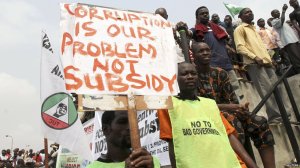I am usually fascinated by safari rallies; from the cool cars, the excitement, the speed, the dangerous car stunts, the tension, competition… and wuh! The cloud of dust. And now, we are expecting a new driver in town; Equity Bank! Vuuuuum vuuuuuum. I have a feeling this is going to be one interesting rally to watch!
Equity Bank intends to enter Kenya’s booming mobile telecommunication market; which has 80% mobile penetration. It’s the leading inclusive bank in Africa, listed at the Nairobi Stock Exchange and Uganda Stock exchange. It is also the largest bank in the region in terms of customer base with over 8 million bank accounts; which is over 50% of all the bank accounts in Kenya. It has presence in Kenya, South Sudan, Rwanda and Tanzania.
For a long time, things have been rather quiet and stagnant in the telecommunication industry; with YU Mobile finally exiting the market. When I first heard that Equity bank was taking its first foray into telecommunications, I couldn’t help but get excited. I mean, there’s finally a firm that could give Safaricom, which has been the dominating firm in the industry, a run for its money! Apparently, the battle between the two has started long before the actual battle begins. However, Safaricom has every reason to shake to its knees given the fashion and novelty Equity Bank has decided to enter the industry. What gap has Equity seen? What’s its aim? Or is it just on a revenge mission? Hmmm
If I were to give Equity bank a human age, it would be a19yr old with a big risk appetite and unafraid to experiment. We have seen Equity Bank revolutionize banking in Kenya and even penetrated market segments that other financial institutions would never have ventured; it recruited millions of people who had formerly shielded away from banks due to their ‘discriminatory’ practices and little interest in the masses. Just as Equity was starting to reap success, M-Pesa pap! Was rolled out bringing financial services even much closer to Kenyans. Need I mention the ubiquitous M-Pesa shops spread throughout the country? Within a year of launching, M-Pesa had 2 million registered users. Talk of potential! Equity Bank’s market niche is largely absorbed by M-Pesa.
Equity Bank is the first in Kenya and Africa to offer a full banking suite through the Mobile Virtual Network Operator (MVNO). A MVNO is a wireless communication service provider that doesn’t own the wireless network infrastructure over which it provides its services to its customers. A Mobile Network Operator (MNO), like Safaricom and Airtel, owns such infrastructure. Equity bank was awarded in April 2014 the license to operate on MVNO, alongside Zion cell & Mobile pay. The operators will be hosted on Airtel’s unused capacity on the network. From the definition, Equity is the MVNO and Airtel is the MNO; Equity is a customer to Airtel and they both stand to benefit.
But what has been giving Safaricom sleepless nights is the use of paper-thin SIM cards the bank is planning to use. Safaricom has been trying to thwart Equity Bank’s effort to enter the industry by opposing the use of the SIM cards, on the ground that it could threaten the security of its M-Pesa platform. The Communication Authority of Kenya had agreed to give the bank a 1 year trial in order to assess Safaricom’s security claims. The SIM cards will consist of 0.1 millimeter thick film that can be layered on an active side of customers’ original SIM card, without affecting customers’ original service providers’ network reception; this means that customers will not have to migrate to the bank’s mobile SIM or have dual SIM. Isn’t that just genius! It typically transforms your phone into a double SIM. The platform will offer voice and data service on top of the money transfer services; you can text, call browse… just like you do with your Safaricom/Airtel/Orange lines.
The technology is already in extensive use in Asia; MI, a Singaporean operator, offers a dual- SIM solution based on ultra-thin SIM technology, Chinese Banks Wunjin Rural Commercial Bank and Quanzhow City Commercial Bank have developed mobile banking system in the same manner. Equity Bank plans to start using the SIM tech from next month as soon as it gets written approval from the Communication Authority of Kenya and the Kenya Commercial Bank. However, according to current developments, it might have to wait a little longer thanks to the meddling of a parliamentary committee.
The bank says the SIM cards will be available for free to its 8.7million customers; a strategic move for penetration. It expects at least 3million of its mobile banking customers to move to its new network. The bank will no longer need M-pesa service, which it joined in early 2010. It might as well drag Family Bank along given its large shareholding in it.
Equity Bank will definitely not have it that smooth. Safaricom has had a head start in the payment sector with its Lipa na M-Pesa service; which already has 120,000 outlets to the service. Moreover, Safaricom has more than 90,000 M-Pesa agents across the country; Equity Bank has 11,000. And not to forget, there are still other players in the industry; Airtel, Orange; Zion cell & Mobile pay which are yet to roll out their plan.
Since its intention to venture into telecommunications, the bank’s share price has been performing exceptionally well and is expected to go even higher. At a current average of sh57, the bank is valued at sh211 billion, only sh3 billion shy of the 2nd largest company in the market, EABL, and 33billion ahead of KCB. Safaricom remains the most capitalized company at the bourse, valued at sh504 billion.
My conclusion? Buckle up people! I think we are about to experience one heck of a ride! Wuhuu… #Equitel

















